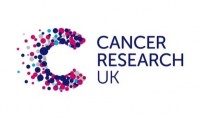-
EC approves UCB’s Zilbrysq as generalised myasthenia gravis add-on therapy
- Source: drugdu
- 97
- December 7, 2023
-
Global donors pledge over $777m to fight neglected tropical diseases at COP28 summit
- Source: drugdu
- 88
- December 7, 2023
-
Elli Lilly Cancer Drug Lands Its Second FDA Approval This Year
- Source: drugdu
- 110
- December 6, 2023
-
UK-India research project trialling easy-to-use UTI test to support fight against AMR
- Source: drugdu
- 89
- December 6, 2023
-
Cancer Research UK and Guardant collaborate to advance cancer detection and treatment
- Source: drugdu
- 87
- December 6, 2023
-
Pfizer Nixes Twice-Daily Oral GLP-1 Candidate After High Rates of Side Effects
- Source: drugdu
- 193
- December 5, 2023
-
Generation bio cuts 40% of staff in blow for non-viral gene therapy sector
- Source: drugdu
- 92
- December 4, 2023
-
EU’s IVD guidelines continue affecting early clinical work
- Source: drugdu
- 96
- December 4, 2023
-
Vivos receives FDA 510(k) clearance for oral devices to treat severe sleep apnea
- Source: drugdu
- 92
- December 2, 2023
-
Pharma’s engagement with healthcare providers has slipped in recent years
- Source: drugdu
- 120
- December 2, 2023
your submission has already been received.
OK
Subscribe
Please enter a valid Email address!
Submit
The most relevant industry news & insight will be sent to you every two weeks.













